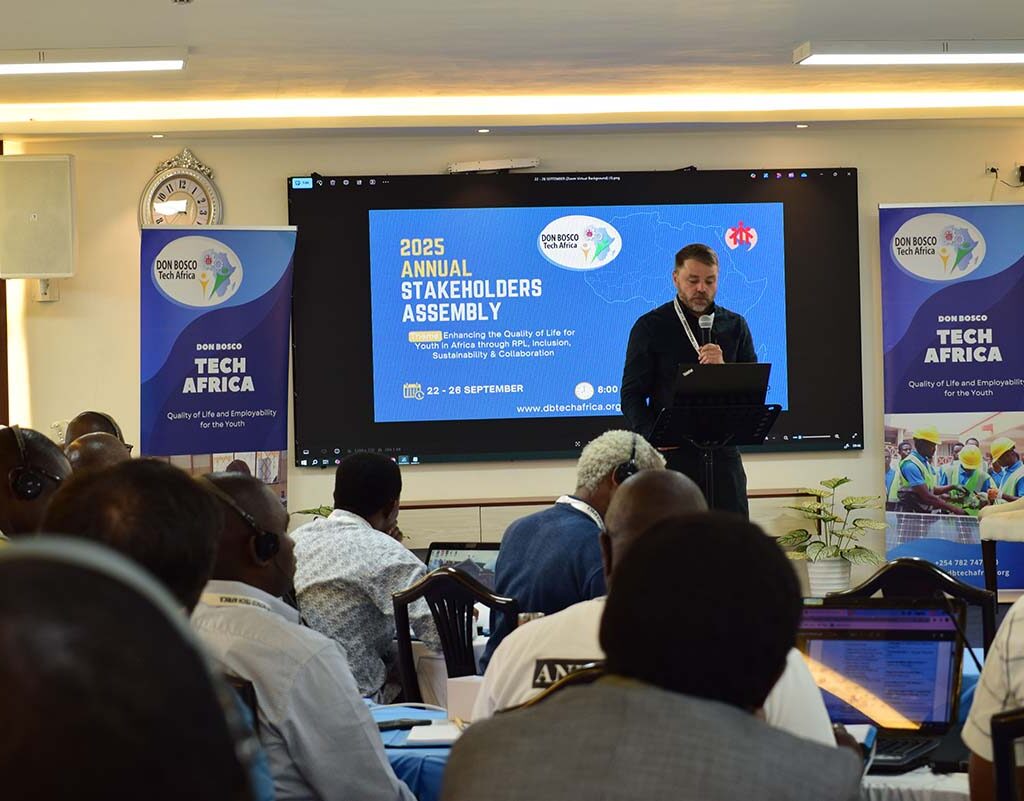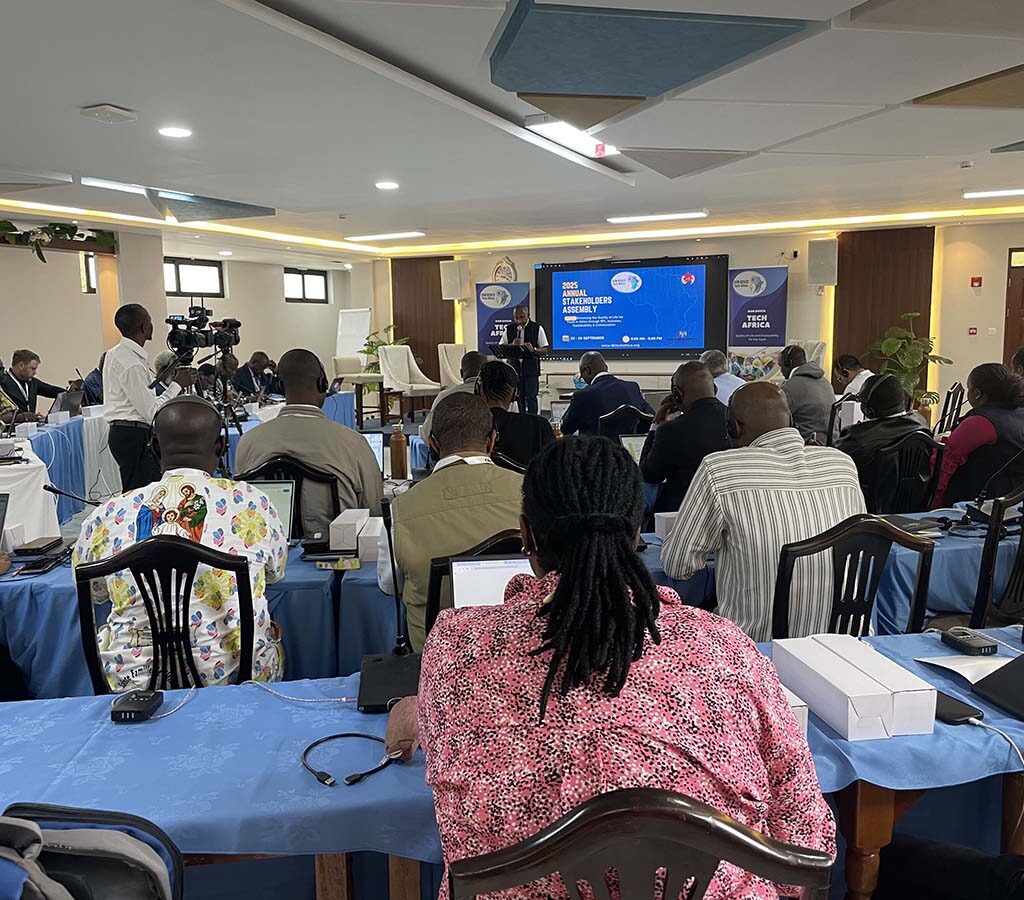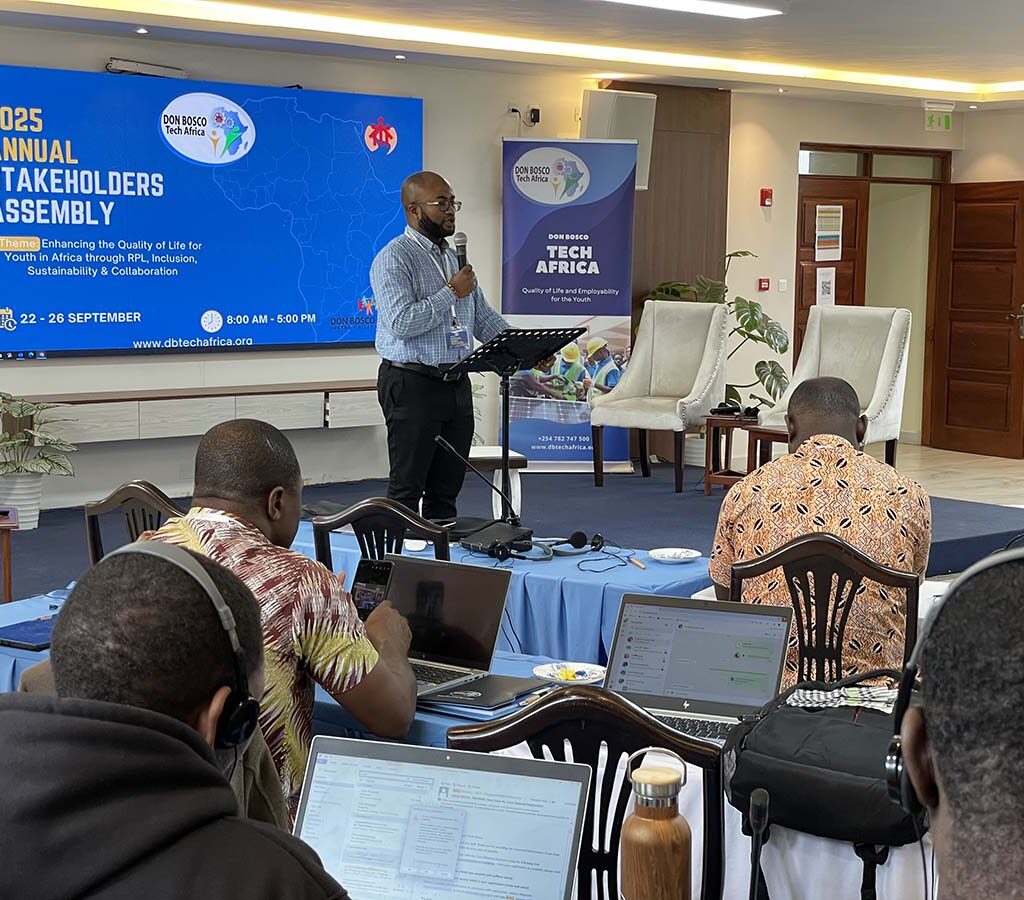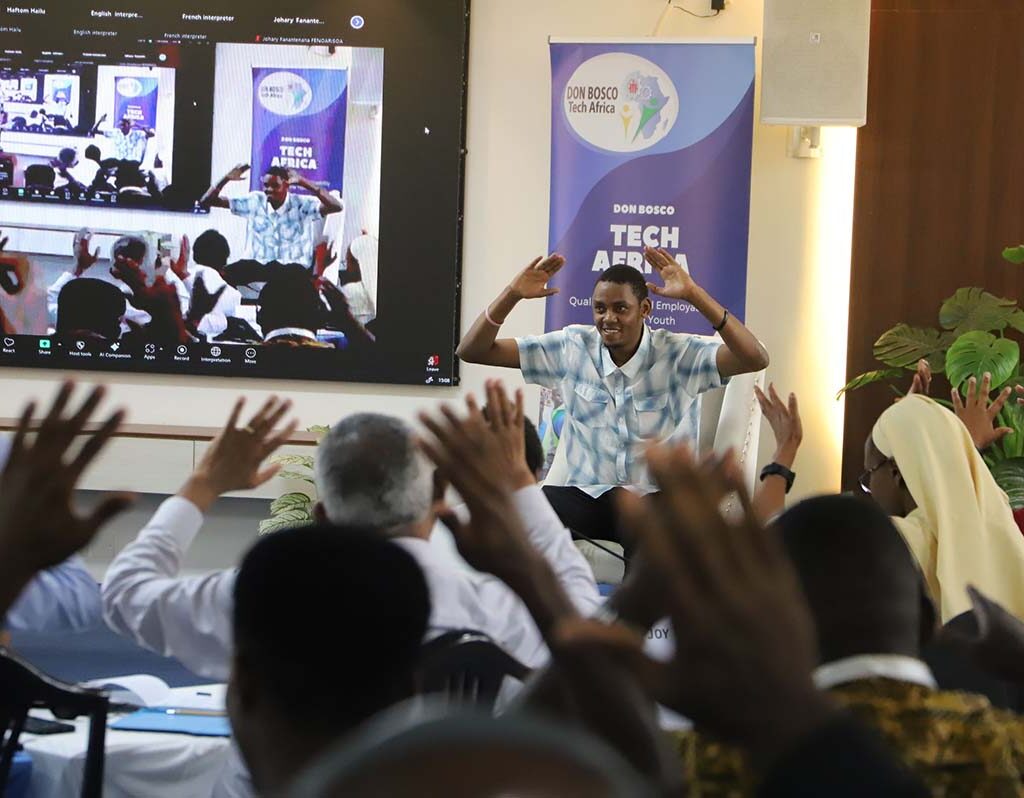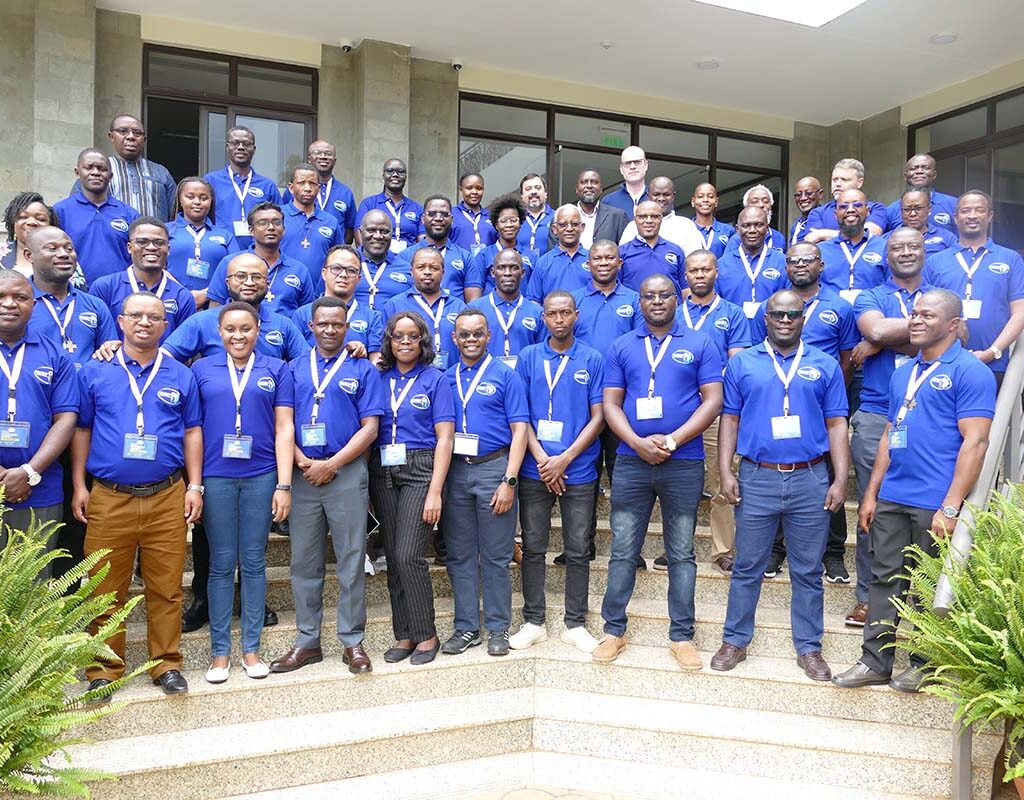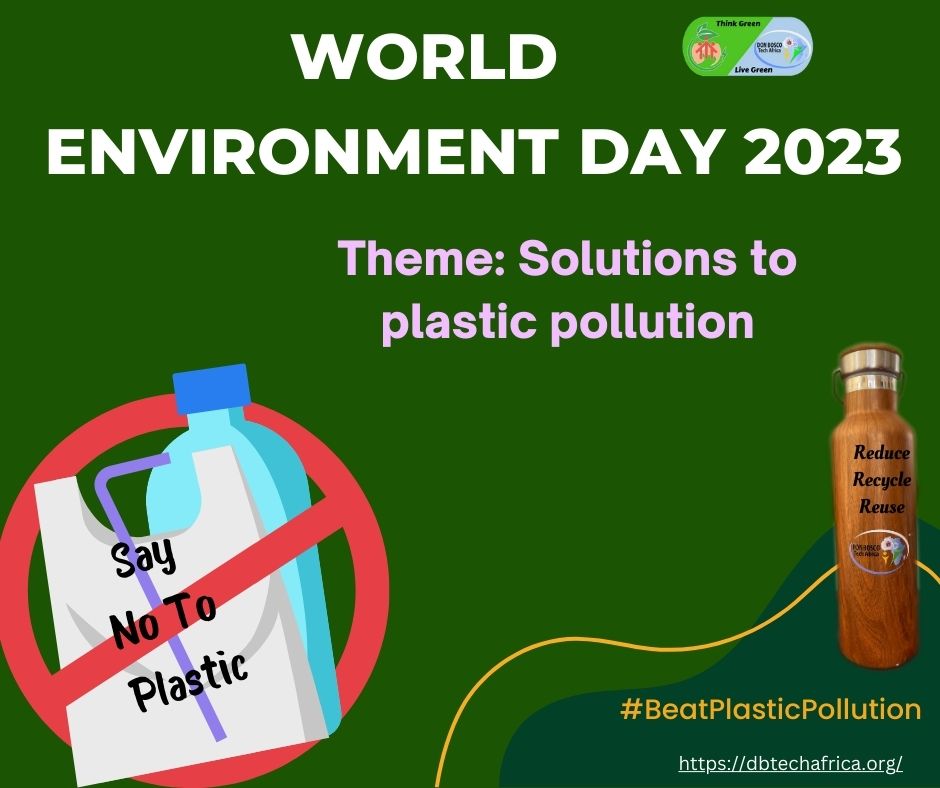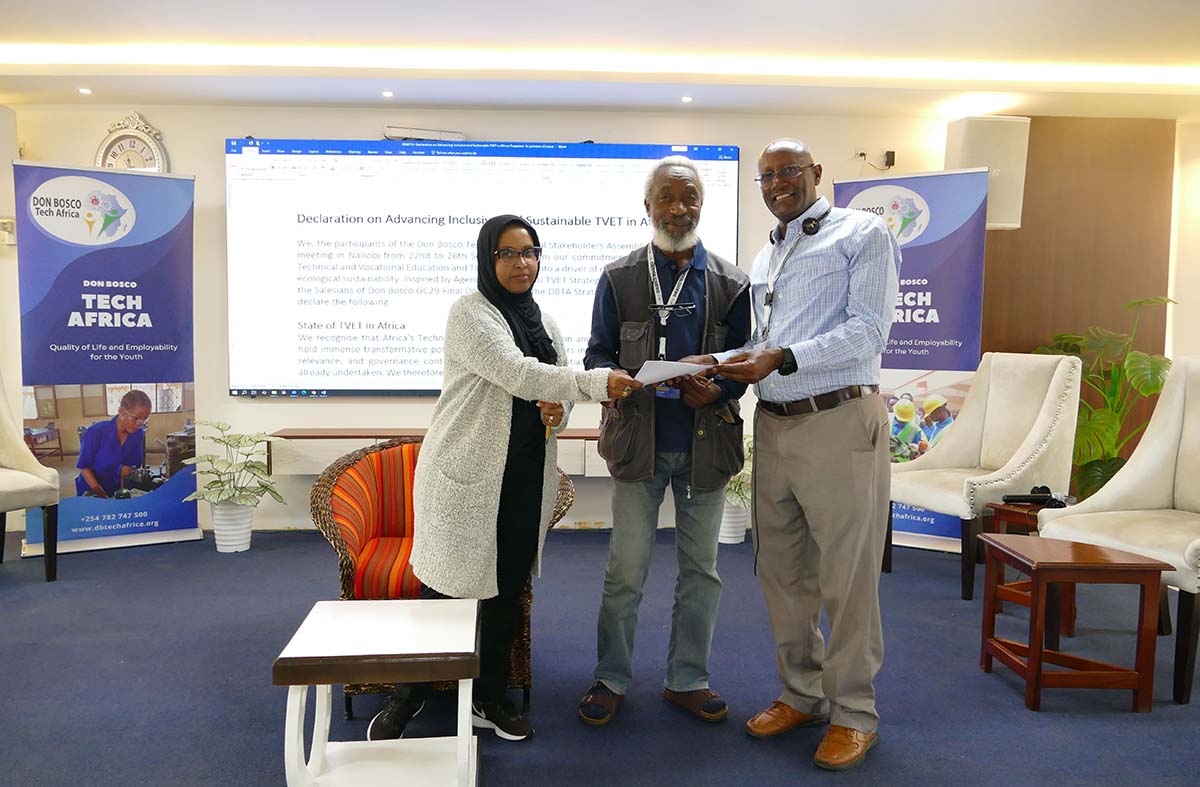
Don Bosco Tech Africa Hosts Transformative Annual Stakeholders Assembly 2025 in Nairobi
Nairobi, Kenya – From 22nd to 26th September 2025, Don Bosco Tech Africa (DBTA) held its Annual Stakeholders Assembly (ASA), bringing together TVET leaders, policymakers, industry representatives, and educators from across Africa and beyond to dialogue, reflect, and plan actions for the future of Technical and Vocational Education and Training (TVET).
In his opening remarks, Fr. TJ George, Provincial of Africa East (AFE), welcomed participants with a reflection on DBTA’s journey since its inception in 2014. From modest beginnings, DBTA has grown into a continental leader in skills development, now reaching tens of thousands of young people each year. He reminded the gathering: “We are DBTA – not just a network, but a family, a brand, and a force for change.”
Fr. Maximus Okoro, Director of DBTA, set the tone with an African proverb: “Wisdom is like fire, people take it from others.” He described the assembly as a “fire circle”, a space where wisdom, innovation, and solidarity fuel Africa’s path to inclusive and sustainable growth. Steffen Möhlendick of Don Bosco Mondo challenged participants to think beyond fragmented projects: “Systemic change is only possible when we align efforts, share resources, and commit to a common vision.”
Fr. Alphonse Owoudou, Regional Councillor for Central and Western Africa Region, stressed that true sustainability goes beyond finances to embrace fraternity and solidarity. Speaking from Rome, Fr. Innocent Bizimana, Regional Councillor of East and South Africa Region, called for self-belief and self-reliance in Africa’s future: “Don Bosco believed in young people, let us continue with this spirit.” Fr. Rafael Bejarano, Councillor for Youth Ministry, reaffirmed our mission — to walk with young people, give them dignity through quality training, and build a future full of hope.
Mr. Stanley Maindi, Director Recognition of Prior Learning (RPL) at the State Department of TVET (Kenya) highlighted global shifts, digital transformation, climate change, and demographic change, stressing the urgency of rethinking TVET to embrace Recognition of Prior Learning (RPL), green and digital skills, and inclusive practices that leave no one behind. “If education is the key to employability, TVET is the master key,” he reminded participants.
The panel on inclusivity in TVET underscored that “inclusion is not an option; we have to do it.” Speakers addressed persistent barriers for women, persons with disabilities, and youth in remote areas, calling for safer and more accessible training environments, curriculum reforms, and innovative solutions like mobile workshops and digital hubs. The message was clear: true inclusion goes beyond charity; it is a moral imperative and a smart investment to ensure no young person is left behind.
In his presentation, Br. John Njuguna challenged participants to look ahead through a creative role-play, asking: “What will the world look like in 2035 if we fail to prepare today?” He painted a striking vision of opportunities already taking shape, from solar energy hubs and 3D-printed schools to marine robotics and AI-driven farming, underscoring that the future of work is no longer distant but unfolding now. He emphasized that classrooms must be digitised, green skills embedded, innovation labs established, and strong industry linkages forged without delay. As he concluded, he left participants with a thought-provoking reminder: “When our children look back in 2035 and ask who built the future they enjoy, may the answer be: our parents did.”
In his presentation on Recognition of Prior Learning (RPL), Mr. Nyamai Wambua of the Kenya National Federation of Jua Kali Associations highlighted Africa’s paradox: while thousands of graduates remain unemployed, millions in the informal sector possess valuable skills that go unrecognized. He emphasized that RPL bridges this gap by certifying skills gained outside formal classrooms, unlocking access to jobs, dignity, and mobility. Using Kenya’s Qualifications Framework as an example, he outlined the need for national learner databases, industry-driven assessments, inclusive approaches in local languages, and recognition of diverse learning pathways.
The panel discussion on Recognition of Prior Learning (RPL) shed light on the realities of youth, artisans, and refugees whose skills often remain invisible without formal certification. Experiences from Nigeria’s trade testing system, South Africa’s evolving framework, and pilots in Malawi and Burkina Faso underscored that Africa’s informal sector holds immense untapped talent. Panellists called for linking RPL to national qualification frameworks, investing in awareness and funding, ensuring fair and inclusive assessments, and harnessing digital tools with integrity. Don Bosco Tech Africa was highlighted as a key player in driving this agenda forward through policy influence, peer exchange, and championing RPL across the continent. The call was clear: RPL is not just certification; it is recognition, dignity, and opportunity.
The conversation on greening TVET highlighted how skills training can become a catalyst for climate action and sustainable development. Discussions underscored that green skills must be fully integrated into curricula, from renewable energy and sustainable construction to digital sustainability and circular economy practices. Across Africa, Don Bosco centres are already pioneering solar power, biogas, waste management, and eco-clubs, while innovation hubs and green entrepreneurship are empowering youth to lead solutions in their communities. The AFM Province, covering South Africa, Eswatini, and Lesotho, presented its Eco Ubuntu Project, a flagship initiative that blends solar PV training, hydroponics, waste recycling, and tree legacy projects with community engagement through sports, debates, and youth camps. Despite challenges such as funding gaps and sustainability risks, panellists emphasized strategies like community engagement, student ownership, and inclusive scholarships to ensure that no one is left behind in the green transition. This affirmed that greening TVET is not a project but a culture, and Don Bosco Tech Africa must position itself as a continental leader in shaping a just and sustainable future.
Students brought the assembly to life with their testimony. Trainees from Don Bosco Makuyu showcased their Aquaponics Project, a fusion of fish farming and soil-free plant cultivation that produces safe, organic food while conserving land and water. With the potential to create jobs, strengthen food security, and protect the environment, the project showed how youth can drive the future of sustainable food systems. Alongside this, moving personal stories highlighted the transformative power of TVET: Kevin Karanja, a student from Karen Technical Training for the Deaf, described the barriers faced by persons with disabilities and the urgent need for inclusive training and workplaces; Don Bosco Boys’ Town Nairobi students John Githu and Oloo Isaiah testified to the benefits of dual training in building skills, discipline, and networks; while Ann from Marsabit, now working with the National Drought Management Authority, credited Don Bosco with opening doors for education and employment in one of Kenya’s most underserved regions. Together, these voices affirmed that TVET is far more than technical training, it is a pathway to dignity, opportunity, and lasting change.
An engaging session on stakeholder engagement underscored how inclusive, transparent, and continuous collaboration is key to keeping TVET relevant for Africa’s youth. Participants explored practical strategies for identifying stakeholders, building partnerships, and aligning training with labour market needs, with lessons drawn from Nigeria’s recent successes in job profiling and developing national occupational standards. This underscores the importance of strong, sustained engagement, which builds trust, drives employability, and strengthens national development.
A panel discussion on Partnership and Resource Mobilisation models emphasized that transformative partnerships in TVET must go beyond transactions to become mission- and value-driven collaborations. Speakers highlighted the importance of mutual contribution, inclusivity and innovation, turning differences into opportunities for co-creation and cultural enrichment. They stressed the need for evidence-based advocacy, strong frameworks, and industry-aligned training models that deliver real employability, alongside regional and global cooperation rooted in accountability and policy alignment. The key takeaway: transformative partnerships create systemic, lasting impact that empowers generations and strengthens Africa’s skills ecosystem.
At the closure of the ASA, Mr. Joseph Sambaya from TEVETA Malawi, spoke passionately about the real people at the heart of Don Bosco’s mission; artisans, young men and women whose lives depend on opportunities for skills, dignity, and hope. “Our work is more of a calling, a mission to respond to this great call by the Master,” he reminded. On her part, Ms. Faustina Ning’a from Light for the World pledged close collaboration on inclusion, particularly for persons with disabilities.
Ms. Prossy Ogwang, speaking on behalf of all participants, described the week as enriching, inspiring, and memorable, filled with fruitful discussions, shared experiences, and strong collaboration across countries and sectors. She expressed a shared commitment to carry forward the lessons, partnerships, and networks built here to advance employability and improve the quality of life for young people across Africa.
Mr. Joseph Nana, Director of Maison de la Certification Professionnelle, Burkina Faso, emphasized how the exchange had deepened understanding of RPL and inclusion, expressing his hope that lessons learned would strengthen national systems and expand opportunities for young people.
Adding to these voices, Mr. Steffen Möhlendick of Don Bosco Mondo reflected:
“TVET is not just training—it is opportunity, dignity, and hope. The insights we have gained, the networks we have strengthened, and the initiatives we have set in motion must now be carried back to our countries, institutions, and communities. This assembly is not an end, but a beginning.”
Fr. Maximus Okoro, Director of Don Bosco Tech Africa, closed the Assembly with a powerful reminder that TVET is not merely about skills training, but a matter of social justice and dignity. Reflecting on the stories of young people, he emphasized the urgency of scaling Recognition of Prior Learning so that no skill goes unrecognized, embedding green and digital skills across curricula, and building transformative partnerships that go beyond donor dependency. He called for stronger youth participation in shaping TVET systems, reminding all that young people are not passive observers but active protagonists in Africa’s future.
“Let us be restless until every artisan, every young person, every girl, every young man with disability, every worker in the informal sector can say: my skills are recognized, my learning is valued, my future is secure”, he emphasised.
The Assembly culminated in the adoption of the Declaration on Advancing Inclusive and Sustainable TVET in Africa, a collective pledge to reimagine skills training as a force for dignity, equity, and ecological justice. Rooted in Agenda 2063, the AU TVET Strategy, the UN SDGs, Laudato Si, the Salesians of Don Bosco GC29 Final Document and the DBTA Strategic Plan 2025-2029, the declaration calls on governments, industry, partners, institutions, and youth themselves to act boldly, scaling Recognition of Prior Learning, mainstreaming green and digital skills, and investing in trainer capacity. It is both a vision and a call to action: to ensure that every young African, regardless of background, has the opportunity to learn, to work, and to build a future of hope.
